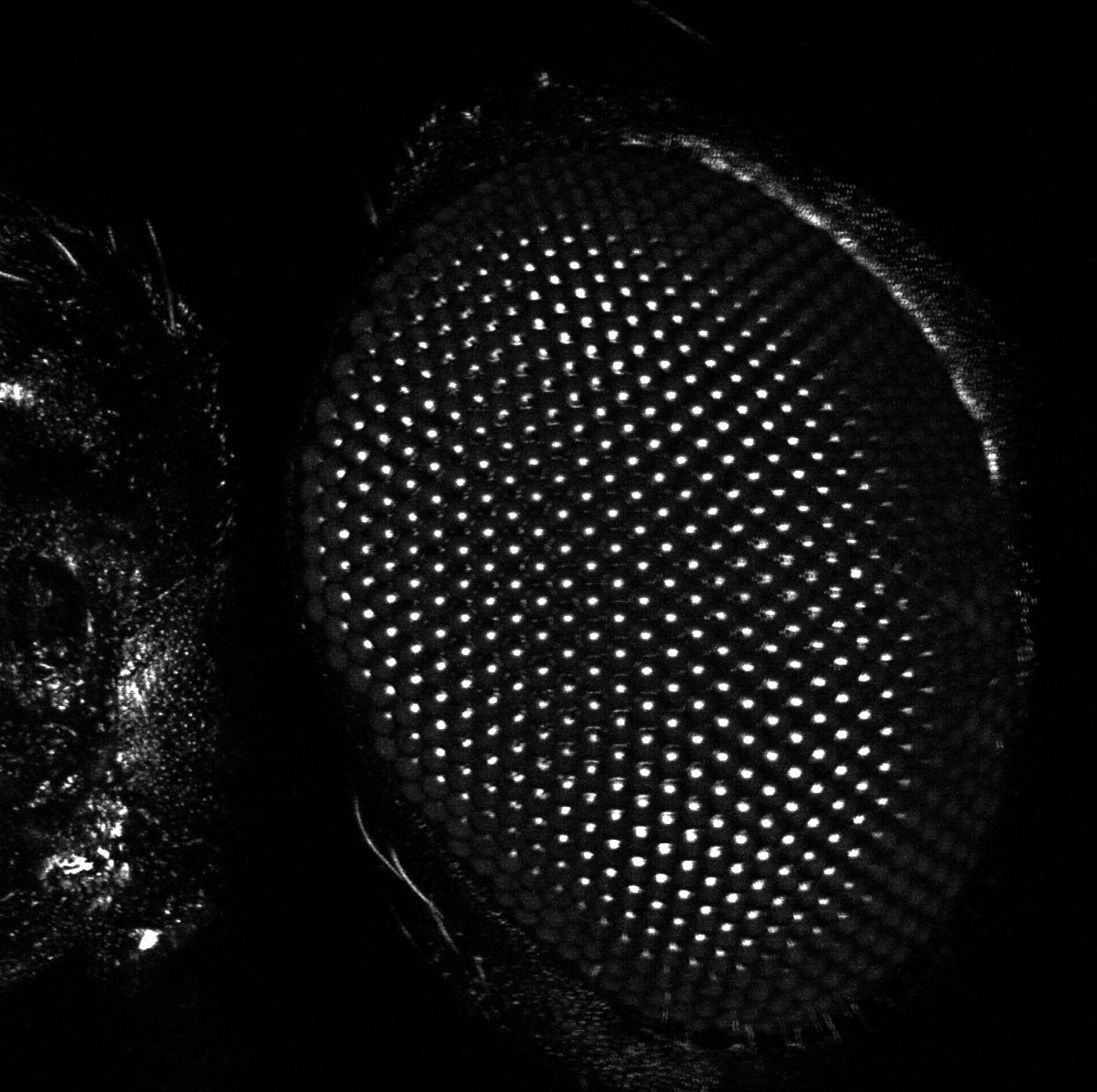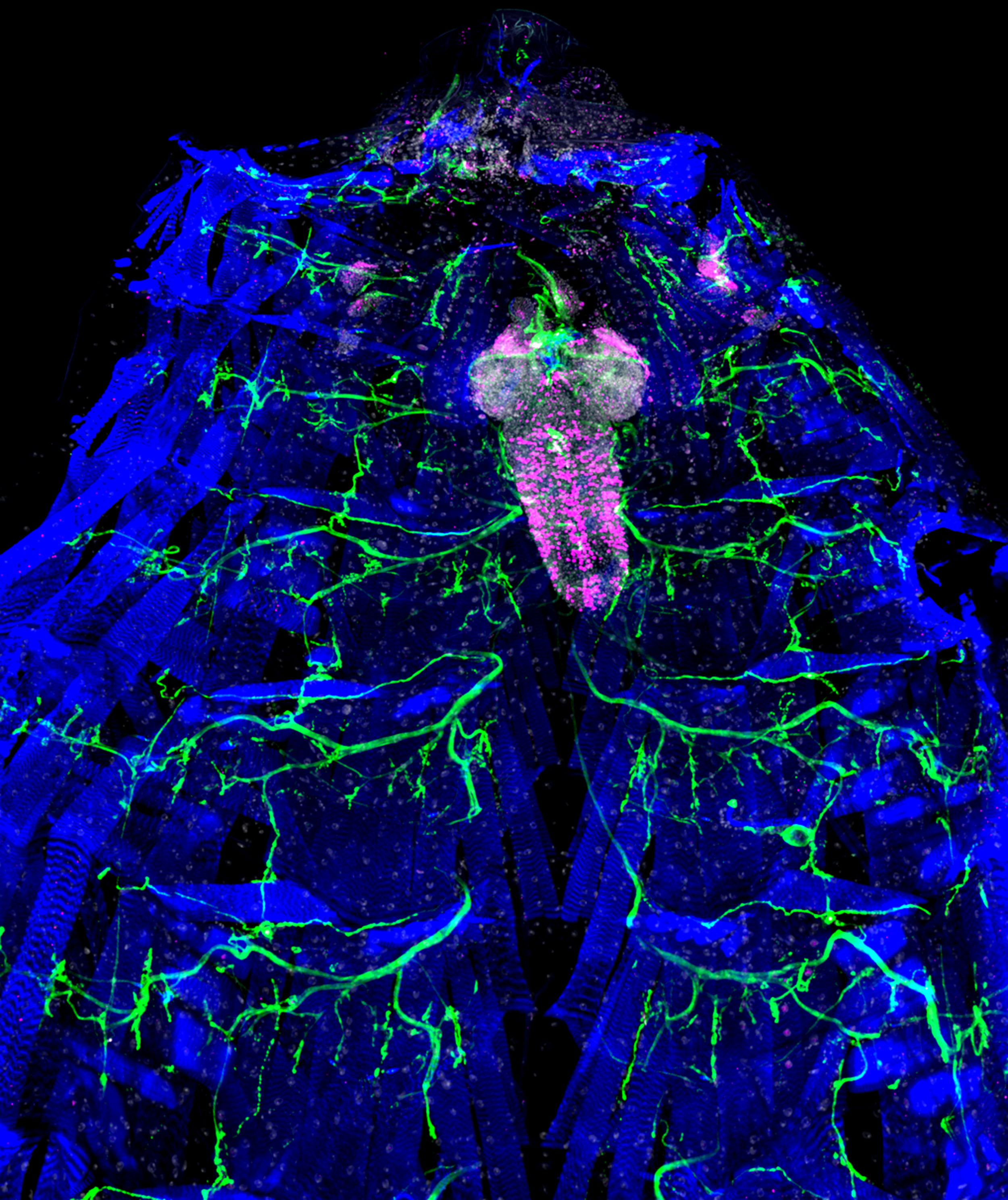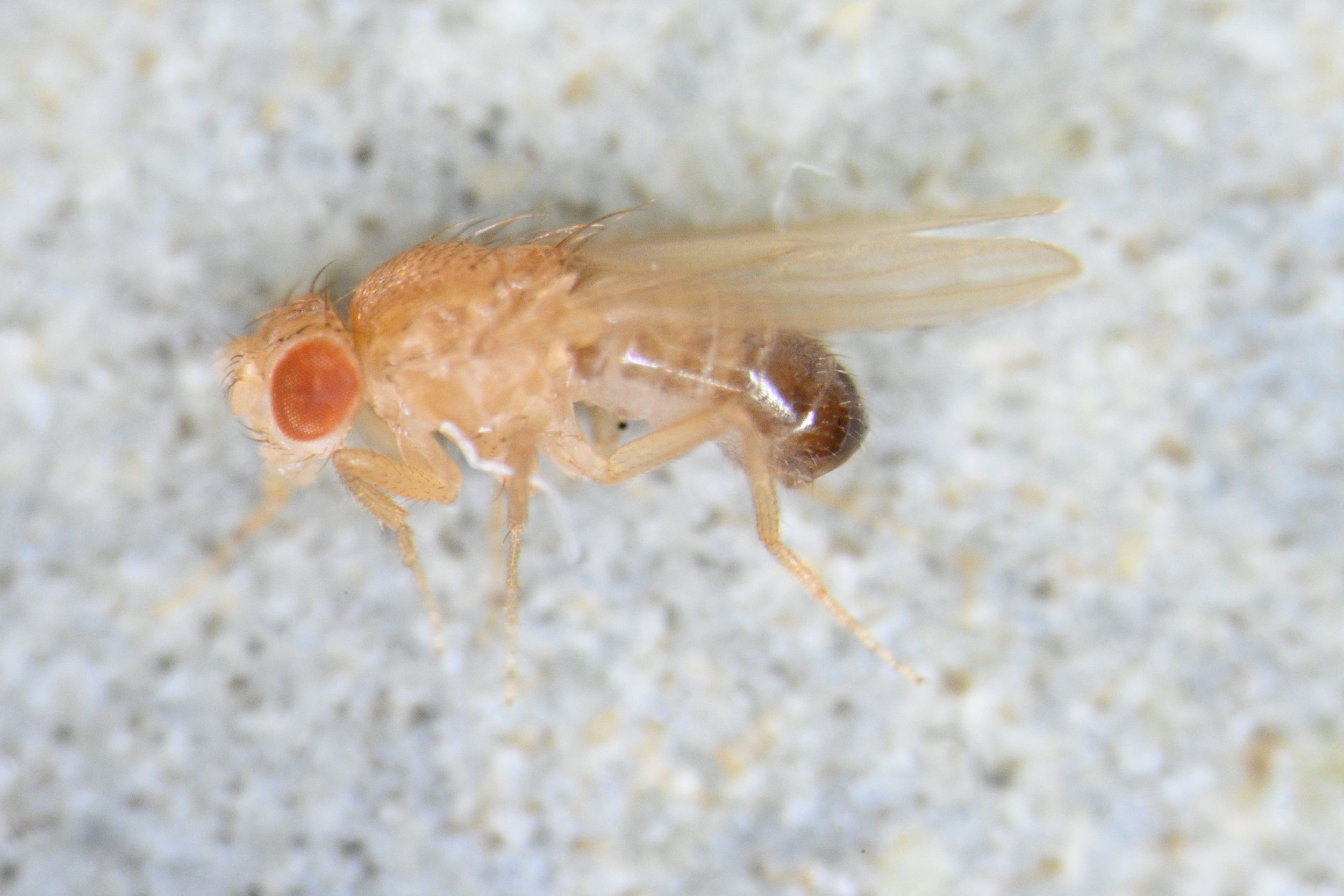
Drosophila 3rd instar larval NMJ, Muscle 6, 7

Drosophila Eye

Neuromuscular synapses in a Drosophila larva

Adult Drosophila Brain

Mouse Forelimb
Based at the Life Sciences Institute at the University of British Columbia, we are a molecular genetics group working in Drosophila and mouse models working on numerous projects
1. Gene regulation controlling neuronal synapse maturation by signals between the synapse and the nucleus. Focus on role of BMP signaling in controlling gene expression required for synaptic maturation
2. Using Drosophila to determine the function of gene variants identified in individuals with disease, as a test for the variant’s potential for contributing to disease causality. Autism, Childhood Growth Disorders, Schizophrenia.
3. Using Drosophila to determine the pathognesis of protein toxicity in neurodegenerative disorders such as tauopathy (Alzheimer’s) and Huntington’s.
4. Chondrogenesis in mammalian models. The role of BMP signaling in driving cartilage and bone formation in mammals.
Drosophila melanogaster
Drosophila melanogaster has long been a leading model organism for identifying and studying the biological mechanisms that underlie human heredity, development, health and disease. Understanding the development and function of neurons within a complex nervous system is a particularly daunting task that requires the use of sophisticated genetic tools. The unparalleled 100yrs of genetic analysis together with the rapid adoption of novel molecular genetic approaches means that, today, Drosophila offers the most sophisticated array of technologies with which to study neuronal development, maintenance and function in vivo.
Contact Us
Department of Cellular and Physiological Sciences
Address
2401 Life Sciences Centre
2350 Health Sciences Mall
University of British Columbia
Vancouver, British Columbia
CANADA (V6T 1Z3)
Phone
Doug: 778-235-3555
Lab: 604-827-4159
doug.allan[at]ubc.ca


